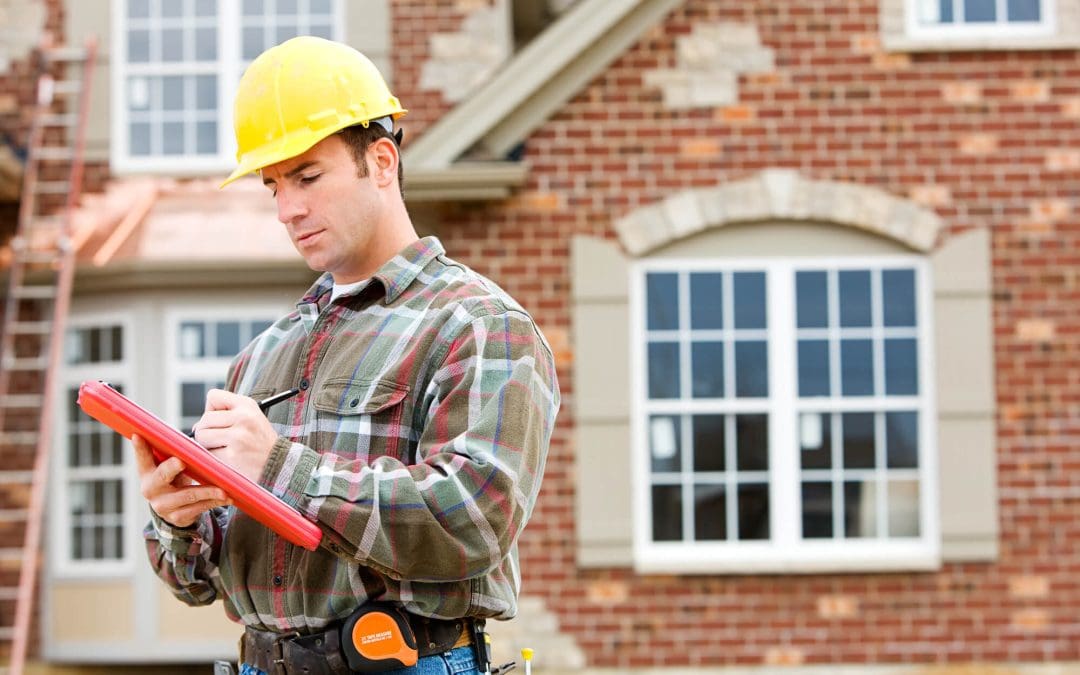Buying a home is one of the largest investments you’ll make in your lifetime. It’s an exciting process, but it can also be nerve-wracking. You can reduce some risks and gain peace of mind when you order a home inspection. While some buyers may be tempted to skip this step, especially in competitive markets, having a professional inspect the property is critical. Here’s why a home inspection should always be a top priority.
Order a Home Inspection to Uncover Hidden Issues
When viewing a home, it’s easy to fall in love with its aesthetics—new paint, modern fixtures, and a beautifully staged interior. However, even homes that appear flawless may have serious issues beneath the surface. A professional home inspection provides a thorough evaluation of the property’s structure, electrical system, plumbing, roof, and foundation, among other things. These are the types of issues that most buyers won’t spot during a regular showing.
For example, foundation cracks, leaks, and faulty electrical wiring are expensive to repair and safety concerns. Without an inspection, you may end up facing substantial repair costs after moving in, turning what seemed like a dream home into a financial burden.
Gain Leverage in Negotiations
Once the home inspection is completed, you’ll receive a detailed report outlining any problems or concerns. This report can be a powerful tool during the negotiation process. If the inspection uncovers significant defects, you can ask the seller to fix the issues before closing or reduce the selling price to cover the necessary repairs.
You can negotiate with facts rather than feelings with a comprehensive inspection report. Sellers are more likely to make concessions when presented with concrete evidence of problems with their property. In some cases, the inspection may reveal minor issues, and you may still be able to use these as leverage for a slight reduction in price or additional benefits, like an extended warranty.
Order a Home Inspection to Prevent Future Safety Hazards
A home inspection doesn’t just uncover current problems—it can also reveal potential safety hazards. For instance, older homes may have outdated electrical systems that aren’t up to modern safety standards. There could be faulty wiring, improper grounding, or overloaded circuits, which can pose fire hazards. Additionally, inspectors will look for issues like mold, mildew, or radon, all of which have serious health implications if left unaddressed.
A home inspection can also alert you to environmental risks like asbestos or lead paint, common in older properties. Knowing about these dangers upfront allows you to either walk away from the deal or plan for remediation to make the home safe for your family.
Plan for Future Maintenance
While an inspection can reveal immediate concerns, it also helps you anticipate future maintenance needs. Many components of a home—like the roof, HVAC system, and appliances—have a finite lifespan. An inspector can give you an estimate of how much longer these systems are expected to last and what kind of repairs or replacements you should budget for in the near future.
For instance, you might learn that the roof has five years left before it needs to be replaced, or that the water heater is nearing the end of its life. Knowing this in advance allows you to plan financially and avoid any unpleasant surprises after you’ve moved in.
Avoid Buyer’s Remorse
Purchasing a home is an emotional experience, and it’s easy to let your heart take the lead. However, without a home inspection, you could find yourself regretting your purchase shortly after the closing. Many buyers who forgo a home inspection discover significant defects later on, leading to costly repairs or even forcing them to sell the home sooner than anticipated.
A home inspection provides peace of mind that you’re making an informed decision. Even if issues are found, knowing about them upfront gives you the ability to make a well-considered choice. You’ll feel more confident about your purchase knowing you’ve taken the necessary precautions to protect your investment.
Meet Insurance and Loan Requirements
In some cases, home inspections aren’t optional—your lender or insurance company may require one before finalizing your loan or offering coverage. Many lenders, particularly those dealing with government-backed loans such as FHA or VA, have specific requirements about the home’s condition. Without a proper inspection, the loan could be delayed or denied.
Additionally, certain insurance providers will not offer policies for homes with known structural issues or outdated systems unless those issues are addressed. By ordering a home inspection early in the process, you can avoid unnecessary delays in securing financing or insurance coverage.
Peace of Mind for First-Time Buyers
For first-time homebuyers, the home inspection process can be especially beneficial. It’s often overwhelming to navigate the ins and outs of buying a property for the first time, and many first-time buyers don’t have the experience or knowledge to identify red flags on their own. A home inspection offers a professional assessment of the home’s condition, ensuring that any major repairs or hidden costs don’t catch you off guard after moving in.
The inspection report also gives first-time buyers a comprehensive overview of the home’s maintenance needs, from the main systems to routine upkeep. Understanding what will be required to maintain the property helps new homeowners manage their responsibilities confidently.
Order a Home Inspection as A Smart Investment in Your Future
Ultimately, ordering a home inspection is an investment in your future. It allows you to make an informed decision, avoid unforeseen expenses, and protect your family and property. Even if you’re purchasing a newly built home, an inspection is still recommended. New homes might have construction defects, and it’s better to catch these before you close on the home.
Whether you’re buying your first home or your fifth, the peace of mind and financial security from a home inspection are invaluable. Don’t let the excitement of purchasing a home lead you to skip this crucial step—your future self will thank you.
FAQs
What is the difference between a home inspection and an appraisal?
A home inspection focuses on the property’s condition, identifying any defects or safety concerns. On the other hand, an appraisal determines the market value of the home based on factors such as location, size, and comparable properties in the area. While both are important, the inspection is about the home’s physical state, while the appraisal is about its financial worth.
What happens if the inspection reveals major issues?
If the inspection uncovers significant issues, you have a few options. You can ask the seller to make repairs before the sale is finalized, negotiate a lower price to cover the cost of repairs, or, if the problems are too extensive, walk away from the deal. It’s important to review the inspection report with your real estate agent to decide the best course of action.
Do newly built homes need a home inspection?
Yes, even newly built homes can have defects or incomplete work. A home inspection checks that everything was built and installed correctly and that all systems function properly. Many new homes also come with warranties that cover defects discovered in the first year, making an inspection essential for identifying issues that fall under warranty.
Should I order a home inspection if I’m buying the property “as-is”?
Yes, a home inspection is still valuable even with “as-is” properties where the seller is unwilling to make any repairs. The inspection gives you a clear picture of the home’s condition and helps you understand what repairs you’ll be responsible for after the purchase. This can also help you decide whether the property is worth the investment or if it would be too costly to repair.
House2Home Inspections Services provides inspections in Hillsborough, Pasco, Pinellas, Manatee, Hernando, and Polk counties. If you’re buying or selling a home, contact us to request an appointment.

